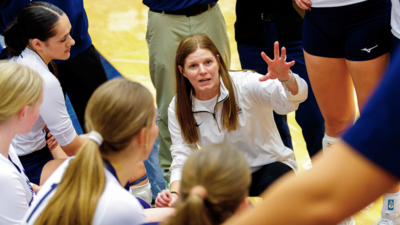Deciding Between a Master's or PhD

If you are close to graduating from Concordia University, Nebraska with a bachelor’s degree but know that your time in the academic world isn’t done, you are likely considering entering graduate school soon. There are many distinct types of graduate degrees that add letters like M.S., M.A., M.D., or Ph.D. after your name, but knowing the difference among these letters, as well as which type of degree will suit your needs and skills best, can be challenging. There are two primary types of graduate degrees: master’s and Ph.D., or doctoral, degrees.
Most students take on a master’s degree as a “next step” in their educational journey if they intend to pursue graduate studies. These programs typically last between one and two years, depending on the student’s courseload, area of study and educational goals. They are more specialized, intense, and independent than bachelor’s degrees, although most students’ work in a master’s program will still take place in a classroom.
Two main types of master’s degrees exist, and the one that a student should choose is entirely dependent on their career goals. Professional master’s degrees teach students field-specific skills that will provide higher earning potential and a competitive edge in the job market, while research masters’ end with a student’s creation of independent research, often with the goal of enrolling in a Ph.D. program.
A Ph.D., on the other hand, is a “terminal degree,” or the highest level of degree that is available in a particular field, that always involves a significant commitment to one’s independent research. While most Ph.D. programs contain a classroom portion – usually during the first year or two of study – the main body of the degree requires students to synthesize an original body of research on a specialized topic that interests them. A majority of Ph.D. candidates aim to become college professors or professional researchers, although this does not apply to all students.
In contrast to a master’s degree, doctorates typically take students between five and seven years to complete, especially if they choose to transition directly from a bachelor’s program to a Ph.D. program and must complete master’s-level coursework during their Ph.D. Students who seek to earn this type of degree, therefore, must recognize that a Ph.D. is a large commitment compared to a master’s. They may secure even higher earnings once they graduate; however, their salary will likely come in the form of a minimal stipend during their years in school, as opposed to master’s students, who will begin earning a career salary after only a year or two of study.
The bottom line is this: while master’s degrees tend to be more practical skills- and career-oriented and have a student’s ability to compete with other job applicants and secure a more prestigious position in their field as their end goal, doctoral degrees are more research-focused, with students aiming to contribute original research to a specific area of study and share their acquired knowledge with others. Even applications to these two unique types of programs are different – while master’s applications look for professional, personal, and academic achievements, Ph.D. applications usually focus on research and publication experience.
So, which degree is preferable? The answer is that neither a Ph.D. nor a master’s degree is inherently “better” than the other; the difference lies in the student seeking the degree. If your goal is to work in academia and study in a highly specialized area for many years, a Ph.D. may be where you find fulfillment. However, if you are career-oriented and want to gain skills specific to the profession you have in mind, a master’s degree might be ideal. The length and depth of a Ph.D. does not make degree holders superior to those with a master’s, just as the efficiency and earlier earning potential of a master’s degree does not place them above Ph.D. programs.
Choosing to attend graduate school is an exciting, life-changing decision for students. Knowing the type of degree that best fits with one’s goals, hopes, and passions takes much uncertainty out of the decision that a student must make. Whether you find yourself in a master’s program or a Ph.D. program one day, it is important that you choose the one that is right for you.
Interested in beginning your postsecondary educational journey at Concordia Nebraska? Learn more here.
Related Stories


